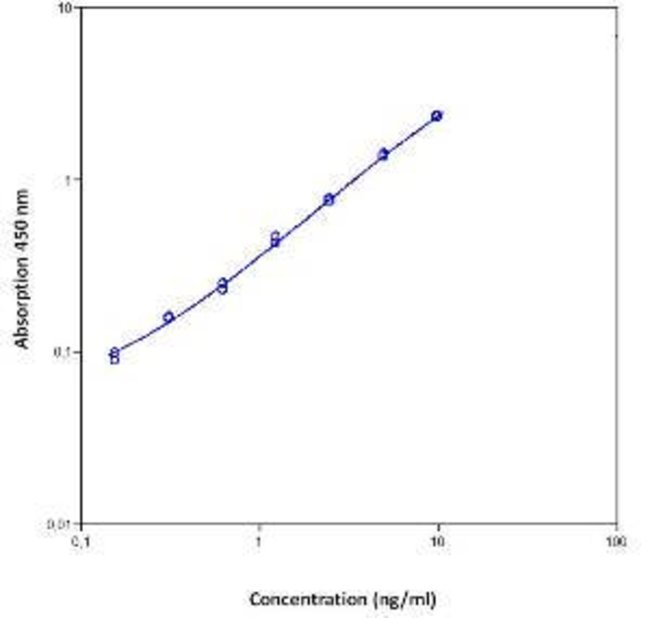CD40L (Soluble) Human Instant ELISA Kit, Instant ELISA Kit, Each

|
|
Details:
The Human Soluble CD40 Ligand(Hu sCD40L ELISA quantitates Hu sCD40L in human serum, plasma, cell culture supernatants, or other body fluids. The assay will exclusively recognize both natural and recombinant Hu sICD40L. Principle of the method The Human sCD40L solid-phase sandwich ELISA (enzyme-linked immunosorbent assay) is designed to measure the amount of the target bound between a matched antibody pair. A target-specific antibody has been pre-coated in the wells of the supplied microplate. Samples or controls are then added into these wells and bind to the immobilized (capture) antibody. The sandwich is formed by the binding of the second (detector) antibody to the target on a different epitope from the capture antibody. An antibody conjugated with enzyme binds the formed sandwich. After incubation and washing steps to rid the microplate of unbound substances, a substrate solution is added that reacts with the enzyme-antibody-target complex to produce measurable signal. The intensity of this signal is directly proportional to the concentration of target present in the original specimen. Rigorous validation Each manufactured lot of this ELISA kit is quality tested for criteria such as sensitivity, specificity, precision, and lot-to-lot consistency. See manual for more information on validation.CD154 is a membrane glycoprotein and differentiation antigen expressed on the surface of T cells. The CD154 stimulates B cell proliferation and secretion of all immunoglobulin isotypes in the presence of cytokines. CD154 has been shown to induce cytokine production and tumoricidal activity in peripheral blood monocytes. Further, CD154 also co-stimulates proliferation of activated T cells and this is accompanied by the production of IFN-gamma, TNF-alpha, and IL-2. A defect in CD154 gene results in an inability to undergo immunoglobulin class switch and is associated with hyper-IgM syndrome. CD154 is a member of the tumor necrosis factor family, and is expressed primarily on activated CD4 lymphocytes, but also on mast cells, basophils, eosinophils and human dendritic cells. CD154 is also found on some epithelial cells, carcinomas and lymphoid dendritic cells. CD154 also appears to be involved in the transduction of regulatory signals for cellular functions such as B cell proliferation and differentiation.
Additional Information
| SKU | 1445989 |
|---|---|
| UOM | Each |
| UNSPSC | 41116158 |
| Manufacturer Part Number | BMS239INST |
